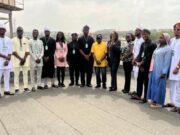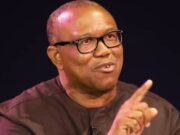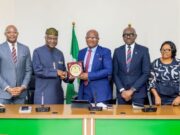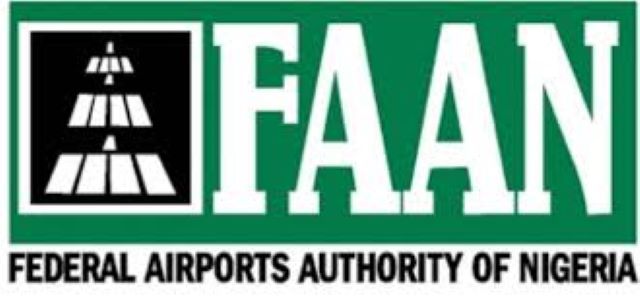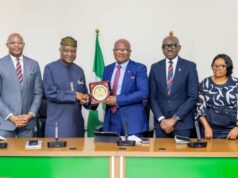Experts have criticized as “unviable and unsustainable” airports newly-built or under construction in many states.
According to them, the financial burdens of the projects and continuous maintenance are too heavy for the state governments and the Federal Airport Authority of Nigeria (FAAN).
At the last count, over ₦369.4 billion has been sunk into such projects by 19 states.
Most of the airports remain grossly under-utilised, often recording nil flights for days and weeks, except for occasional chartered flights.
There are no commercial flights running the routes.
According to the Nigerian Civil Aviation Authority (NCAA), over a dozen states have recently built or projects are ongoing.
Some of the newly-built are : Asaba Airport; Bayelsa International Airport (Yenagoa); Ogun Cargo Airport; Ekiti Cargo Airport, Ado-Ekiti; Anambra Cargo Airport –Umuleri; Wachakal Airport, Damaturu, Yobe State.
Others are Gombe Airport; Dutse International Airport, Jigawa State; Kebbi Airport, Jalingo Airport, Taraba State, Nasarawa Airport, Cross Rivers International Cargo Airport and Zamfara Airport.
Some of those under construction are as follows: MKO Abiola International Airport, Osun State; Abia Airport, Abia State; Lekki/Epe Airport in Lagos and Auchi Airport in Uzzaire, Edo State.
Although the states are yet to make available the amounts spent on such airport projects, it was learnt that Bayelsa State, for instance, spent N60 billion on its airport, while Akwa Ibom spent N20 billion.
Delta State and Jigawa State spent N17 billion each, while Bauchi pumped N15 billion into its project.
Kebbi State spent ₦15 billion
Similarly, Ogun State spent $800m to construct its Agro-Cargo Airport while Ekiti State expended N20 billion.
Anambra cargo airport cost ₦10 billion, while Wachakal Airport, Damaturu, in Yobe State, costs ₦18 billion and Dutse International Airport, Jigawa, ₦20 billion.
Other huge investments in airport projects include those of Abia, ₦40 billion; Kebbi State, N15 billion; Nasarawa State, N40 billion; Osun State, N40 billion; and Zamfara, N62.8 billion.
Some states argue that if the facilities do not pull in enough passenger throughputs, they could serve as hubs for airlifting of cargo, especially agro-produce.
Murtala Muhammed International Airport in Lagos, Nnamdi Azikiwe International Airport in Abuja, and Mallam Aminu Kano International Airport, Kano are the only profit oriented airports.
Next to them is Port Harcourt International Airport considered to be afloat.
Some industry experts and stakeholders insist that the states’ focus on building new airports that are economically unviable is at best misplaced priority.
For instance, the Airport in Ado Ekiti, the Ekiti State capital, which has been categorised as a cargo/passenger airport, has fewer flight activities to show for the investment.
The Cargo/Passenger Airport in Damaturu, Yobe State, also falls into this category, with limited or no flight activities into the aerodrome.
Aviation experts cautioned against the proliferation of airports across the country without proper feasibility studies.
Managing Director of the Federal Airports Authority of Nigeria (FAAN), Mrs. Olubunmi Kuku, noted that 19 of the 22 airports being controlled by FAAN are unviable. Despite this many states have continued to develop the ongoing projects.
There are not less than 29 airports in the country.
Mrs. Kuku said the Authority is cross-subsidizing the 19 airports and will continue to do so.
She said: “We have 22 airports which we own and manage. We also have about six or seven airports that are either owned by state governments or private individuals or entities, which we also support with either aviation security or fire and rescue services.
“We have many states in the North as well as in the Southwest that are coming up with new airports.
“Based on the states today, only three of the 22 airports are profitable and contribute largely to the sustenance of the airport companies that we run.
“We are cross-subsidising the other 19 airports and in most instances, we will substitute or cross-subsidise for some of the airports that are coming on board as well.”
Nigeria seeks investment to transition to cleaner energy in Aviation
Expert canvasses special funding to drive aviation growth
The FAAN MD said rather than building new airports, “we need to look at the bottom of the value chain to determine what activities can drive traffic into these airports.
“What that means is that we start to build a network of airports where we can push our feeders to some of the other states or to some of the other locations.”
Former NCAA Director-General, Captain Musa Nuhu, and former FAAN Managing Director, Captain Rabiu Yadudu, also expressed concerns about the financial burden of managing airports, many of which are not commercially viable.
A pilot, Capt. John Okakpu, said it is needless for any state to build an airport without considering the passenger traffic available to it.
He said some governors initiate such projects merely because others have done so.
“Before you think of building an airport, you should be able to ascertain the passenger traffic. You must do it even before any other study,” he said.
Okakpu, who is an NCAA-licensed commercial pilot with over 30 years of experience, stated that considering the proximity of states, the idea of building airports by every state was a wrong move.
He said: “Once an aircraft takes off, it has to fly for an average of 40–45 minutes before it lands because the engine has to have a complete circle; if not, that engine will die.
“And a piece of that engine costs $30 million-$40 million. That means that a state cannot be targeting traffic from neighbouring states; rather, many of them will be thinking of international traffic. If that is their thinking, can that be right?
“Who in his right senses will now drop cargo in Lagos and then fly to Ogun, Oyo or even Osun State for about 10–20 minutes, risking a $30–$40m engine? How will that happen?
“When politicians want to spend money, they don’t think. Most of those airports will not function.”
Chief Executive Officer of Centurion Security Limited, Group Captain John Ojikutu (retd.), echoed similar sentiments, questioning the approval process and the lack of a solid business plan behind these airport projects.
“When were they approved by the NCAA? What was the business plan behind them?” he asked, stressing the importance of having a clear operational base and understanding the potential passenger traffic.
Founder of Aviation Summit, Capt Dele Osanipin, said FAAN should stop funding dormant airports, saying doing so makes no economic sense.
Osanipin said: “I am not blind to the fact that accessing certain places by road comes with a lot of challenges, especially given the insecurity in the land. That said, state governors cannot continue with the culture of waste.
“We have been calling on relevant aviation authorities to stop granting licenses to them. Apart from draining their state’s resources, the airports overwhelm the financial capacity of FAAN.”
However, a former Rector of Nigerian College of Aviation Technology (NCAT), Zaria, Captain Samuel Caulcrick, said instead of agonising over the number of airports, they should be seen as catalysts for development.
He said: “Airports are development’s catalysts as settlements spring up around airports with attendant economic activities.
“We should instead take advantage of the number of airports by rearranging development and pivoting on the available airports.
“One such reason is the lack of good road infrastructure to move local produce from the states to other areas or the outside world – air transport would bridge that shortfall.”
Chairman of West Link Airlines, Capt. Ibrahim Mshelia, said the number of airports should be higher than what it is, as airports are vital for national development.
He said Nigeria currently should have at least 700 airstrips and approximately 50 airports.
“Airports are a necessity; not a luxury. For instance, if there is a need to rapidly deploy troops to places like Maiduguri for combat, using roads is not a practical option. Bandits can cause havoc before reaching the destination.”
“Airports are essential to open up industrial and agricultural areas for the import and export of goods. The state of the road network in the country is often inadequate.”
“Many states, like Imo, Rivers and Abia, with thriving industries, require airports for efficient transportation,” Capt. Mshelia pointed out.
President of Aircraft Owners and Pilots Association of Nigeria, Dr. Alex Nwuba, also said Nigeria needs more airports, but they are all being built at unsustainable scale.
Chief Press Secretary to the Ekiti State Governor, Mr. Yinka Oyebode, said it would be wrong to declare that some state airports are not living up to their expectations.
He said: “Between December and now, no less than 25 aircraft of different sizes had landed and taken off from the Ekiti Airport.”
Credit: thenationonlineng.net










